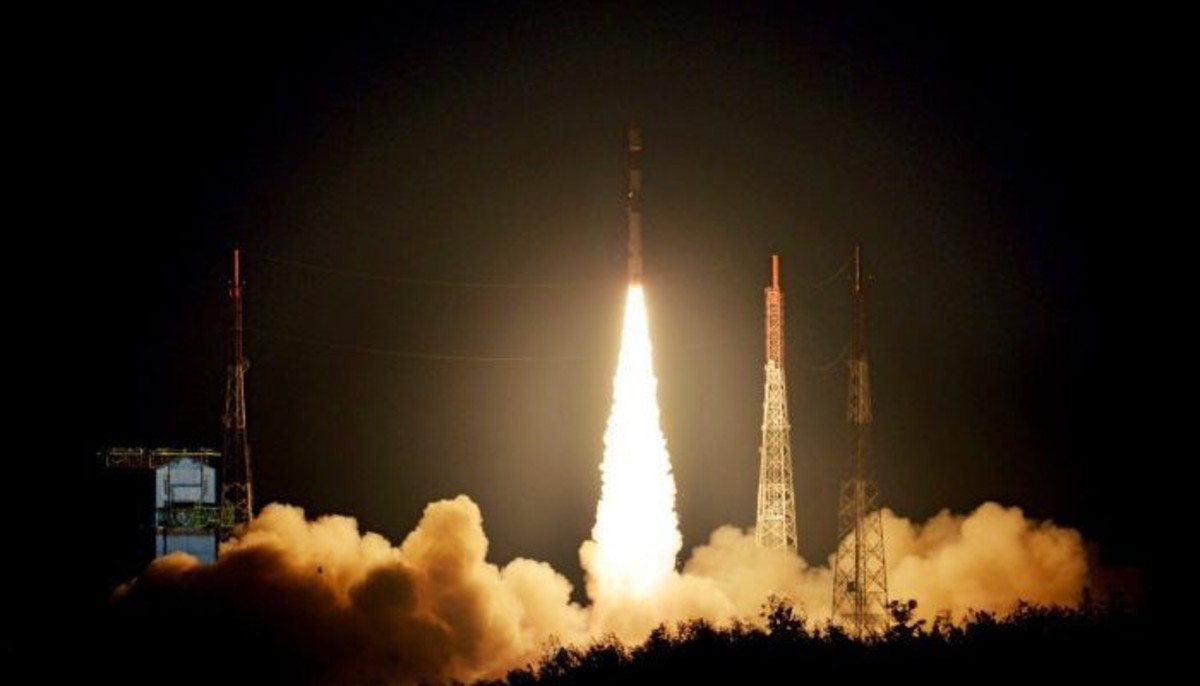Indian space startup Agnikul Cosmos became the world’s first company to successfully test a fully 3D printed rocket engine.
“We have successfully fired our higher stage semi-cryogenic rocket engine called Agnilet. This entire engine is one piece of hardware and has zero assembled parts,” Agnikul Cosmos Co-Founder and CEO Srinath Ravichandran said.
It takes just four days to produce and has the capacity to carry payloads of up to 100 kilos around 700 kilometers above the Earth’s surface.
Normally, rocket engines have 100s of different parts that have to be built individually, but Agnilet puts three different modules into a single piece of hardware.
“The novelty here is – what comes out of the 3D printer can directly be used in the rocket. There is no need to assemble or fabricate, and the turnaround time is less than four days,” Ravichandran said.
Asked about the significance of the 3D printing technology and its advantages, Ravichandran said that it is error-free, quick, and cost-effective.
“In the conventional process, it could take longer than a month to fabricate the very same engine. With 3-D printing, we can realize light-weight engines despite their complex geometry. Our single-piece 3-D printed engine requires no assembly, it can pretty much be directly fitted into the rocket” he said.
Since the firm’s inception, it has always been a huge believer of the “Make in India” ideals and more recently of the Aatmanirbhar Bharat vision of Prime Minister Narendra Modi, he said.
“True to that spirit, everything about this engine is Indian,” Ravichandran said.
Team Agnikul is aiming for their maiden orbital launch by 2022 and company officials said they have signed Memoranda of Understanding with a few customers for offering their launch services.
Agnikul was the first startup to have signed a non-disclosure agreement with the Department of Space.
The firm has been working with various ISRO centers and will get access to technical information and facilities necessary to go forward with their launch vehicle development.
This was possible because of the new space reforms announced in 2020 which allows private players to work with ISRO and further develop the Indian space sector.
Agnikul may be the first to be successful, but it is not alone. Another space startup is Hyderabad-based Skyroot Aerospace founded by former Indian Space Research Organisation scientists Pawan Kumar Chandana and Naga Bharath Daka.
Last September, they too revealed their fully 3D printer cryogenic rocket engine dubbed Dhawan-I, which will be used to power the Vikram-II rocket.
Skyroot is building Vikram-II from scratch.
The firm had entered a non-disclosure agreement with the Department of Space on February 2, which will allow them to utilize ISRO’s test and launch facilities to test their Vikram-I rocket and Dhawan-I.
Yet another Bengaluru-based satellite imaging startup Pixxel is working with NewSpace India Limited to launch its satellite.
In December 2020, Isro had announced that Pixxel’s first satellite Anand will be launched in its PSLV-C51 (polar satellite launch vehicle) mission this year.
Morgan Stanley claims that the global space industry is expected to generate $1.1 trillion-plus by 2040, which will be more than triple its current value of $350 billion.
And, the 3D printed rocket engines are expected to play a big role in this explosion of value.
The only US-based startup close to producing a fully 3D printed rocket engine is Firehawk Aerospace, and they only just raised the $2 million needed to start on their project.





